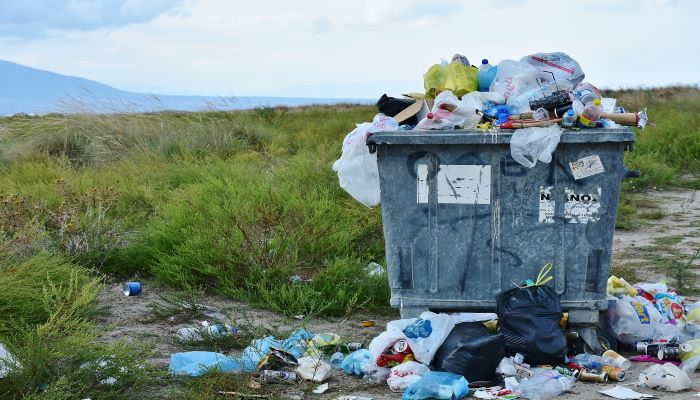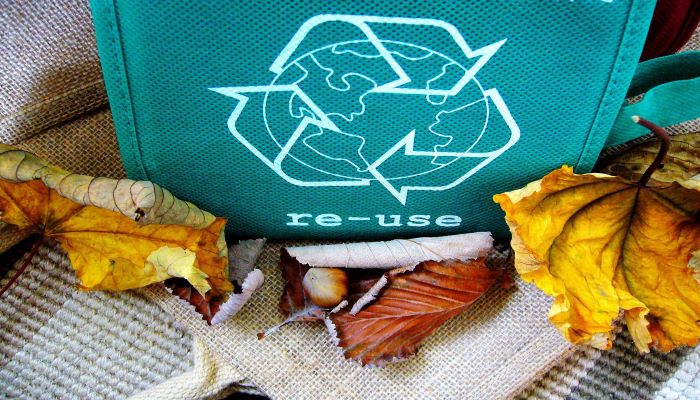A recent study suggests that by 2050 oceans will contain more plastic than fish. You know, plastics are undoubtedly durable and versatile however they’re not sensible for the atmosphere. Yes, plastic bags are easily available but they are non-biodegradable and cannot be recycled as well. So, let’s do something good for the environment and switch to eco-friendly alternatives that we can use to lessen the negative impact on Mother nature.
1. Glass-
Unlike plastics, glass is a renewable thing that’s made of sand and not fossil fuels. Glass can easily be recycled and converted into new bottles and reused as glass jars for storage.
2. Reusable Shopping Bags-
Most shops give reusable shopping bags as alternatives these days. These bags are mostly made of canvas, cotton, hemp, leather, fiber and woven plastics. You can always fold these bags into a pouch and put it in your pocket.
3. Liquid Wood-
This biodegradable product looks, feels and acts like plastic and is suitable for packaging various products. Liquid wood is generally used to create toys, hi-fi speaker boxes and golf tees.
4. Chicken Feathers-
Chicken feathers is employed to create water resistant thermoplastic because it consists of keratin, a tough and durable protein like plastics. Making thermoplastic is cost-effective, biodegradable and renewable.
5. Plastic Additives-
Nowadays, biodegradable thermoplastics are being created by using metal compound additives known as prodegradant concentrates (PDCs). These additives are used to produce food containers, disposable diapers, landfill covers and thin plastic shopping bags.
6. PHA Polyesters-
In case you didn’t know, PHA polyesters are biodegradable plastics that resemble man-made polypropylene. This is usually used in making plastic films and injection-molded bottles.
7. Bamboo Toothbrushes-
Plastic toothbrushes are the second largest plastic waste generated after plastic bags. Just in india, more than 150 million plastic toothbrushes are thrown into the garbage every month. Every part of the toothbrush – the handle, as well as the bristles – is made from petroleum-based plastic, which does not biodegrade for thousands of years.So while switching to a bamboo toothbrush could seem sort of a small change, the stats above show that we could all make a big difference to the planet if we choose alternatives that are a whole lot better for the environment.
8. Clay Bottles-
Plastic bottles used to store water take around 1,000 years to biodegrade and produce toxic fumes upon incineration, meaning most plastic water bottles simply end up becoming litter. When you add this to the fact that plastic from the bottles usually leaches into water over time, it makes more sense to switch to eco-friendly alternatives.
9. Biodegradable Sanitary Napkins-
Every month, over a billion non-compostable sanitary pads are dumped into sewerage systems, landfills, fields and water bodies in India, posing huge environmental and health risks. Made with more than 90% plastic — together with super absorbent polymers and non-woven plastic components — soiled napkins stay in the landfills for about 800 years!
10. Bamboo and Wheat Straws-
The dangers of a plastic straw can hardly be overestimated. In the time that it takes for the biodegradable straws to fully decompose, their plastic counterparts would have barely disintegrated. These small fragments of plastic would seep into the soil and water, polluting the ecosystem, choking marine life that mistook it for food and eventually entering the food chain that takes them back to humans.
Plastics are eating us up, and with time they will eat up the planet too. By putting in small efforts to eliminate use of plastic in day to day activities, and using their alternatives, we can be the change we need to see. So don’t be drastic; Say “NO” to plastic.
-ScoopWhoop

